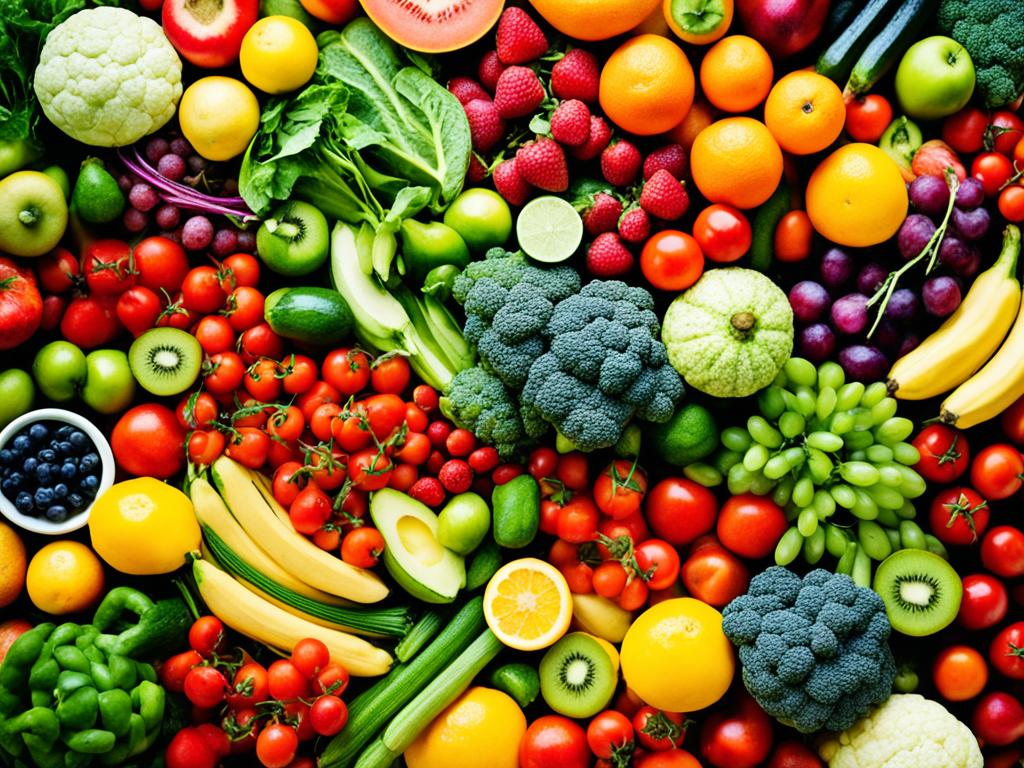Advertisements
You organic food are increasingly gaining prominence on supermarket shelves and in the choices of health- and environmentally-conscious consumers. But is it worth investing in this pesticide-free option? In this section, we will explore the benefits of organic food and discuss the environmental impact positive of the choice for organic products.
When we choose to organic food, we are choosing a healthier and more conscious diet. The health benefits are countless, since organic food are grown without the use of pesticides, herbicides, and synthetic fertilizers. This means that these foods are free from chemical residues, which can reduce the risk of long-term health problems.
Advertisements
Furthermore, studies show that organic foods have a higher content of nutrients, such as vitamins and minerals, compared to conventional foods. This is because organic farming prioritizes soil health and biodiversity, resulting in products that are richer in nutrients and have more intense flavors.
Another important point is the environmental impact positive of organic food. The sustainable agriculture, which is the basis of organic food production, contributes to the preservation of natural resources, the conservation of biodiversity and the reduction of soil and water pollution.
Advertisements
Therefore, investing in organic food is not just an individual choice for a healthy eating, but also a contribution to a more sustainable planet. In the next section, we will explore in more detail how organic food can contribute to a healthy lifestyle.
Healthy and Conscious Eating: How Do Organic Foods Contribute to a Healthy Lifestyle?
In this section, we will delve deeper into how organic foods can contribute to a healthy eating and a conscious lifestyle. We will discuss the nutritional benefits of organic foods, how they can strengthen the immune system and reduce the risk of disease. We will also discuss the importance of avoiding pesticides and pesticides found in conventional foods.
Organic foods are grown without the use of pesticides, herbicides or chemical fertilizers. This production practice values soil health, biodiversity and food quality. Organic products are rich in nutrients, vitamins and minerals that are essential for the proper functioning of our bodies.
Nutritional Benefits of Organic Foods
Organic foods are sources of essential nutrients such as vitamins, minerals and antioxidants, which are important for strengthening the immune system. They also have a higher fiber content, contributing to better digestion and weight control.
Additionally, organic foods are free of pesticide residues, herbicides, and artificial pesticides, which can be harmful to health when consumed in large quantities. These substances have been linked to developmental problems, cancer, and hormonal disorders.
The Importance of Avoiding Pesticides and Agrochemicals
By choosing organic foods, we avoid ingesting pesticides and agrochemicals that are present in conventional foods. Studies show that regular consumption of organic foods can reduce exposure to these toxic chemicals, minimizing health risks.
It is important to note that chronic exposure to pesticides and agrochemicals can be related to neurological problems, hormonal dysregulation and damage to the reproductive system. Choosing organic foods is a way to take care of our health and promote a healthy lifestyle. healthy lifestyle and conscious.
Take advantage of the opportunity to live a healthier life by making conscious choices when purchasing organic foods. Try incorporating these foods into your daily diet and reap the health benefits.

- Strengthens the immune system;
- Reduces the risk of disease;
- Rich in essential nutrients;
- Promotes better digestion;
- Helps control weight;
- Avoids the ingestion of pesticides and agrochemicals;
- Minimizes health risks.
Contributing to a Sustainable Planet: The Positive Environmental Impact of Organic Food
Organic food is not only beneficial for our health, but also for the environment. By choosing sustainably produced foods, we are contributing to a more balanced and healthy planet.
THE sustainable agriculture is a practice that seeks to produce food in a conscious way, respecting natural resources and avoiding the use of harmful chemicals and pesticides. Organic foods are grown in systems that preserve the soil, reduce water and air pollution, and promote the conservation of biodiversity.
This form of agricultural production has a environmental impact positive, as it prevents contamination of natural resources and excessive exploitation of the soil. In addition, organic foods generally consume less water and energy compared to conventional foods, resulting in lower greenhouse gas emissions.
By choosing organic products, we are contributing to the preservation of the environment and the promotion of a more sustainable agricultural system. Choosing a conscious diet free from pesticides is an important gesture to ensure a healthier future for our planet.




